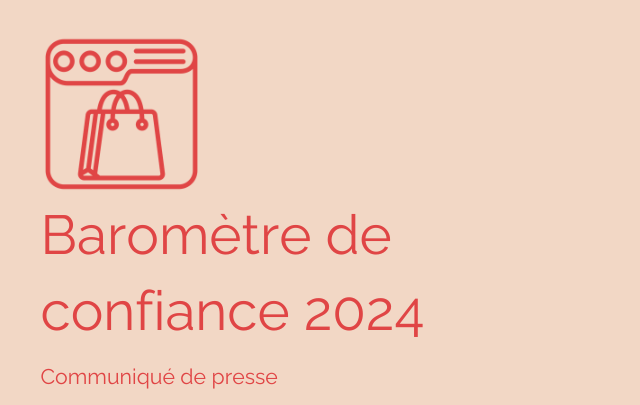
Buying personal insurance online: an innovation to be handled with care

John Schnobrich (Unsplash)
Since 2018, it has been possible to take out personal insurance online, without the intervention of a professional. It's convenient, provided you exercise a healthy dose of caution since such a transaction can have a financial impact many years later, when you need it.
In 2018, the Loi sur la distribution des produits et services financiers (LDPSF) underwent an in-depth reform. In particular, it opened the door to the sale of personal insurance online and over the phone, even without the assistance of an advisor. Life, disability, critical illness, long-term care and health insurance can now be purchased via a fully automated platform. However, group insurance cannot be purchased in this way.
In order to provide a framework for this new form of commerce, the Autorité des marchés financiers (AMF) has published a regulation that came into force on June 13, 2019, setting out the rights of consumers and the obligations of firms. These regulations only apply to platforms that enable the online purchasing process to be completed. The regulations in force are designed to protect consumers who choose to purchase a financial product or service through a fully automated process, and to offer them the same means and information to make an informed decision as if they were dealing with an advisor," explains Sylvain Théberge, Director of Media Relations at the AMF, adding that privacy and personal information protection laws and regulations also apply to this type of transaction.
New channel, same obligations
Let's be clear. Firms that sell personal insurance online are not exempt from any of the obligations usually incumbent on advisors: essentially, the Internet is merely an alternative means of distribution," explains Nathalie Durocher, a lawyer with Delegatus. The basic obligations of a firm offering insurance remain the same, including the duty to inform and advise the client: "Even after starting an online process, the client still has the right to speak to an advisor. At the appropriate time, firms and insurers have an obligation to ensure access to an advisor linked to the firm and authorized to act in the required discipline. If such an advisor is not available, the customer must have the option of suspending the conclusion of an insurance contract until such time as he or she can speak with the advisor.
The customer also has the right to cancel the contract up to 10 days after purchase. Please note, however, that this right does not apply when the transaction is concluded with an advisor, even if the process began via a digital space.
What other obligations do law firms and insurers have towards their clients?
- Advise customers appropriately. The site must be able to perform a Financial Needs Analysis (FNA), identify insurance needs and ensure that the product is suitable;
- Present all necessary information in a clear, legible, precise and non-misleading form, in particular that relating to the identification of the firm, validation of its registration with the Autorité and the formulation of a complaint;
- Make available, through its digital space, a specimen of the policy and any available endorsements;
- Before concluding the contract, provide a summary of the information used to identify the customer's needs and complete the proposal, as well as the options and terms and conditions of the chosen product.
Firms must also ensure that customers do not lose out if the new insurance they buy replaces one they already have.
An obligation specific to the personal insurance discipline has been added to avoid the risk of inappropriate replacement of a personal insurance contract," confirms Sylvain Théberge. Firms must also detect irregularities in the information provided by the client, and prevent a consumer who does not meet the product's eligibility criteria from concluding a transaction."
Consumer responsibility
Despite all these obligations, the consumer who chooses to purchase an insurance product online must assume his or her share of responsibility and respect his or her own obligations in the process, including that of carefully reading the instructions and information, as well as fully understanding the information he or she is asked to provide in order to properly assess his or her needs and offer him or her a product or products that meet his or her insurance requirements," explainsMs. Durocher. For example, the consumer must disclose anything that could influence the insurer in setting the premium, such as whether or not he or she is a smoker. At the end of the process, they must also verify the accuracy of the information about them presented in the summary.
Me Durocher warns that misrepresentations and false identities can result in the cancellation of insurance coverage. Sometimes, these problems can arise from an error or misunderstanding. Misunderstanding the information provided - or even that required by firms - can undermine informed consent. When in doubt, a customer really shouldn't hesitate to seek the help of a professional advisor.
More than just a purchase
Despite the firm's strict guidelines, Julie Roy, a financial security advisor with St.Cyr et Associés in Val-d'Or, urges consumers to be extremely cautious. In her opinion, online purchases are not always as well informed as face-to-face discussions with an advisor.
More than just a purchase
Despite the firm's strict guidelines, Julie Roy, a financial security advisor at St.Cyr et Associés in Val-d'Or, urges consumers to be extremely cautious. People generally come into my office with an idea in mind about the insurance product they want to buy, but often change their minds after analyzing their overall situation," she explains. She warns that insurance products, especially disability insurance, remain quite complex, and that there is a high risk of buying a product that doesn't fit very well. Sometimes this doesn't stem from a lack of understanding of the product purchased, but rather from a poor analysis of one's overall financial situation, coverage needs or perception of the coverage one already has, such as group insurance at work.Some people are better covered than they think and don't really need new disability insurance, but others on the contrary are less well protected and would benefit from additional coverage," she illustrates.Before taking out personal insurance, then, there are several basic questions to ask yourself. Could your death or that of a family member put people in a difficult financial situation? In the event of an accident or illness that prevents you from working, what income could you count on? What levels of insurance coverage do you need? What premium can you afford within your budget? The AMF offers a useful guide to help you think about these issues.
But for Julie Roy, the simplest and most effective solution is still to consult a professional: "Working with a financial security advisor allows you to get an accurate picture of your situation as a whole, and not just to buy a product," she stresses.






